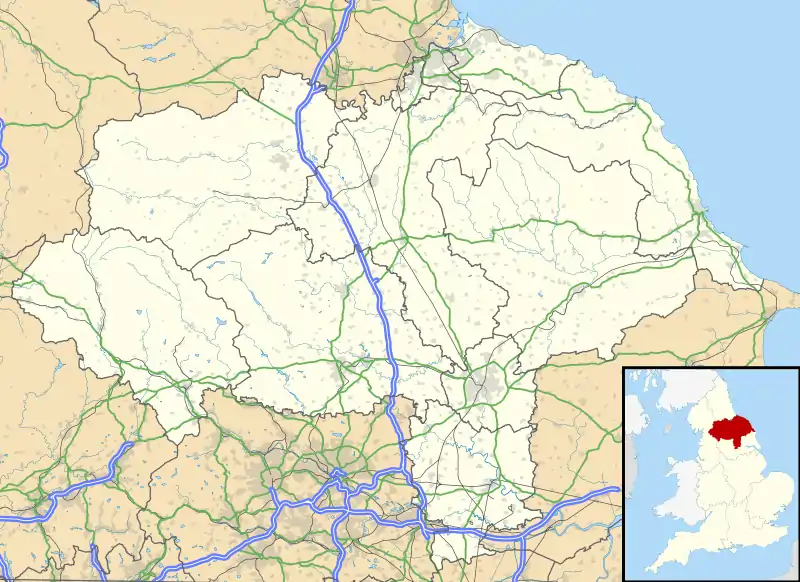Speeton
Speeton is a village in the civil parish of Reighton, in North Yorkshire, England. It lies near the edge of the coastal cliffs midway between Filey and Bridlington. It is North Yorkshire's easternmost settlement, but historically lay in the East Riding of Yorkshire until local government re-organisation in 1974.
.jpg.webp)
Speeton railway station on the Yorkshire Coast Line from Hull to Scarborough served the village until it closed on 5 January 1970.[1]
A local geological feature, the Speeton Clay (approximately 130 million years old), was the source of an especially interesting fossil of the Hermit crab.[2]
Second World War

The Second World War defences constructed around Speeton have been documented by William Foot. They included a large number of pillboxes. Many of the remaining defences have been subject to coastal erosion.
St Leonard's Church
.jpg.webp)
The church of St Leonard's at Speeton is one of the smallest parish churches in Yorkshire and was erected in the early Norman period, probably on the site of an earlier Saxon church. The church was Grade II* listed in June 1966.[3]
References
- Butt, R. V. J. (1995). The Directory of Railway Stations: details every public and private passenger station, halt, platform and stopping place, past and present (1st ed.). Sparkford: Patrick Stephens Ltd. ISBN 978-1-85260-508-7. OCLC 60251199.
- René H. Fraaije (January 2003). "The oldest in situ hermit crab from the Lower Cretaceous of Speeton, UK". Palaeontology. 46 (1): 53–57. doi:10.1111/1475-4983.00286.
- Historic England. "Church of St Leonard (1148130)". National Heritage List for England. Retrieved 30 October 2017.
- William, Foot (2006). Beaches, fields, streets, and hills ... the anti-invasion landscapes of England, 1940. Council for British Archaeology. ISBN 1-902771-53-2.
- "St Leonards Church, Speeton". Retrieved 9 September 2007.

